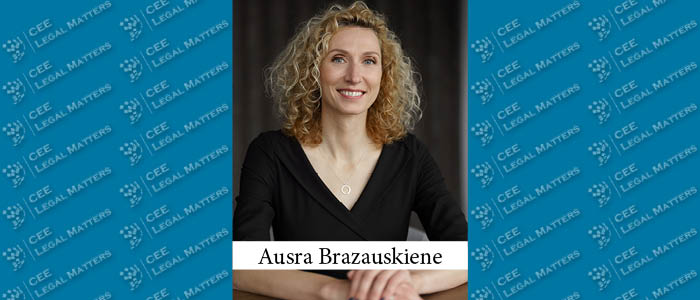The due performance of obligations in Lithuania may be secured by various security instruments. Pledge, mortgage, and financial collaterals all create a right in rem for the creditor, i.e., such a security, upon due perfection, becomes enforceable against third parties and withstands bankruptcy, reorganization, and similar procedures of the security provider. Other types of collateral, such as default interest, surety, guarantee, deposits, and other instruments agreed by the parties terminate immediately upon bankruptcy, reorganization, or similar procedures of the security provider.
Accessory Obligation
The pledge/mortgage obligation is an accessory obligation and depends on the existence of the secured obligation. It terminates automatically with the termination or invalidity of the main obligation (certain exceptions are applied in case of novation).
Secured Obligations
A pledge/mortgage can secure current or future financial (payment) obligations. Under Lithuanian law, one pledge/mortgage agreement may secure only one main obligation. Thus, in respect of each separate main obligation separate security agreements must be executed and perfected.
Parties to the Security Agreement
The secured creditor may be a foreign entity or natural person. A pledge/mortgage may secure financing provided by local and foreign creditors.
Granting loans to Lithuanian companies (without offering other financial services) is not subject to licensing by the Bank of Lithuania. However, a foreign entity licensed in another country or providing not only lending but also other financial services may be subject to passporting or local licensing requirements. Also, a security may be granted in favor of several creditors who are parties to the same obligation. Lithuanian law does not provide for the possibility to create parallel debt obligations as an instrument to enable the equal ranking of secured creditors’ claims under different secured obligations in respect of the same collateral. However, parallel debt obligations validly created, existing, and enforceable under the applicable foreign law, are secured in practice by a pledge or mortgage in Lithuania. We are not aware of any case law where the foreclosure of security in favor of the security agent acting based on a parallel debt obligation was refused because the obligation secured was parallel debt and not the original obligation of the secured creditors.
The debtor and collateral provider may be a natural or legal person. Private legal entities may generally have and undertake any civil rights and obligations. However, for the transactions to be valid they must: (1) not infringe the aims of the legal entity or borrowing limits; (2) be approved by all necessary corporate and regulatory approvals; and (3) be executed by duly authorized representatives of the company.
Lithuanian law prohibits a Lithuanian company (private or public limited company) to advance money or provide financing or security instruments in favor of third parties – if these acts facilitate or are aimed to facilitate the acquisition of shares of that Lithuanian company. Any security instrument (pledge/mortgage, financial collateral, guaranty, surety, etc.) shall be null and void ab initio if they breach the financial assistance prohibition. On the corporate benefit issue for third-party security, Lithuanian law requires that management bodies/officials of the company act in the interest of the company and its shareholders (participants). Any security transaction that contradicts the interests of the company or its shareholders or the aims of the company may be invalid. Thus, the existence and establishment of corporate benefit for the Lithuanian company acting as a collateral provider is crucial where security is provided for the obligations of a third party.
Types of Collateral
A mortgage can be created over: (1) the whole or a part of an existing or future immovable asset; (2) a business – the object of company mortgage may be a part or all material and non-material movable and immovable assets of the company; and (3) movable property and property rights – only if these movable assets are mortgaged together with immovable property.
A pledge can be created over: (1) company shares; (2) funds in bank accounts – the pledge of funds in bank accounts is usually combined with other security instruments (such as the power of attorney or other agreements), allowing the creditor to have access to the bank account of the pledgor immediately upon default; (3) intellectual property rights; (4) receivables – a pledge over receivables is usually combined with a conditional assignment of such receivables. That combination enables the secured creditor to maneuver in enforcement depending on the factual situation: either the assignment may be effected immediately upon notice, or, while enforcement of the pledge is subject to the grace period, but does not carry the risk of being challenged in bankruptcy situations; (5) property rights; and (6) pools of movable assets.
By Ausra Brazauskiene, Partner, Ilaw Lextal
This article was originally published in Issue 10.4 of the CEE Legal Matters Magazine. If you would like to receive a hard copy of the magazine, you can subscribe here.
